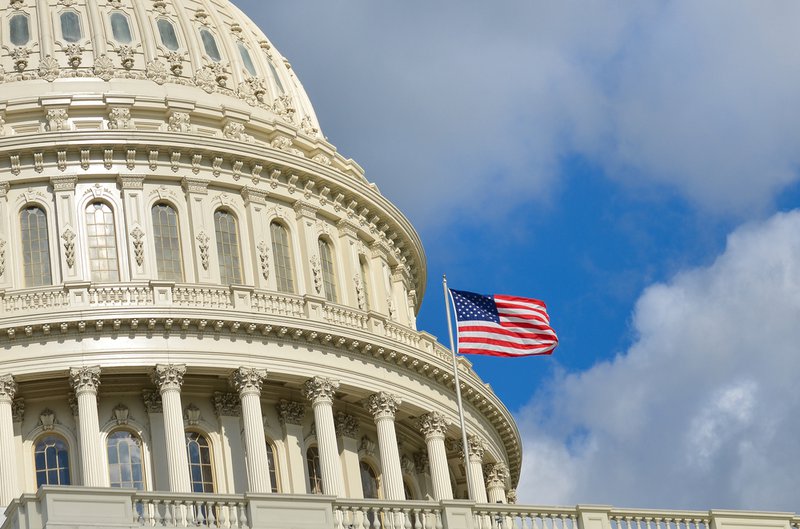Progressive Politics and… God?
Weekly Article

Orhan Cam / Shutterstock.com
April 5, 2018
Don’t discuss religion or politics at the dinner table, right? What about both at once? On purpose?
Few people dispute the “social good” that derives from when churches, mosques, and synagogues provide communities with recreational facilities and soup kitchens, with services like daycare and vocational training. Religious charity, as one of the pillars of American society, goes as far back as John Winthrop’s 1630 “City Upon a Hill” sermon.
But religion can be about more than alleviating social problems or providing spiritual support (two functions that have inherent value, of course). By moving beyond, for example, charitable support, religion can also challenge and overturn social, political, and economic systems. It can disrupt.
I recently saw that play out. On March 18, I attended a Seder at the ADAS Israel Congregation in Washington, D.C. A traditional Passover Seder is a Jewish celebration during which people observe the story of liberation from slavery in Egypt. But this Seder was no ordinary Seder. It was a Labor Seder.
Rebecca Ennen, the deputy director of Jews United for Justice, invited me. JUFJ is an organization that “provides Jews with an opportunity to weave together Judaism and activism” by creating “a community in which to explore and strengthen commitments to both.” It works in partnership with other groups and organizations around D.C., Montgomery County, and Baltimore to push for change on issues like affordable housing and paid family leave. As Ennen described it, “the Labor Seder is sort of an entry point for folks interested in political life.” It’s a way to get people fired up.
In practice, that means using a Seder narrative that brings “Jewish, labor, and activist communities together to retell the story of the Exodus in a time [many people] feel they are actually living that story.” More specifically, the focus of this Seder was on voting.
2018 is an important election year for Washingtonians. A number of contests will play out on ballots for the primary election in June. Some highlights include Mayor of the District of Columbia, Chairman of the Council of the District of Columbia, Attorney General of the District of Columbia, and Ward Member of the Council of the District of Columbia (Wards 1, 3, 5, and 6). Members of the DC Council, for example, are responsible for “oversight of multiple agencies, commissions, boards and other instruments of District government,” “maintaining a balanced budget and the fiscal health of the District of Columbia government,” and for making laws. This means that there’s a lot at stake when it comes to whom Washingtonians choose as their elected officials later this year.
Organizers of the Seder made clear to participants that “making change through elections and voting doesn’t take a miracle.” What it does take is “all kinds of action and education.” Attendees were there to “pick up new ideas and practice new skills that will help move… communities toward liberation and democracy.” Yes, they shared their Jewishness and they came together to celebrate Passover. But on top of that, they were there to practice their Jewishness in order to push for political change.
Four questions are a part of every Seder, helping to set in motion the telling of the Passover story. This Seder played on the concept with four questions of its own: Why do local elections matter? How are local elections connected to racial justice? What is our power in local elections? And what does it take to win a local election, and how can we help?
Participants were then divided into groups in which they learned about effective ways to canvass for the D.C. elections and phone bank for the Montgomery County elections. In addition, they learned about how the D.C. Fair Elections Act seeks to make running for office a more equitable process.
This was politics and religion in action. Judaism plus political activism. Ennen explained to me that JUFJ was created with the goal of “being the progressive voice in the Jewish community, and the Jewish voice in the progressive community.”
Bringing religion and politics together isn’t a simple and seamless endeavor, of course. Striking the right balance has always been a challenge, both for progressives and for conservatives. “We Americans… can be quite inconsistent in our views of how and when religion should influence politics,” E.J. Dionne Jr. and John J. Diiulio Jr. write in their 2000 book, What’s God Got to Do with the American Experiment? They continue: “Many who welcome the prophetic role of the churches in movements to abolish slavery, promote civil rights, and secure social justice are skeptical of applying religion’s prophetic voice to matters such as abortion, sexuality, or family life. Many who welcome the second set of commitments can be just as wary of crusades rooted in the social gospel.”
But it doesn’t have to be either-or. It’s possible to have a nuanced approach to religious commitments and social change in ways that take into account issues like separation of church and state, freedom of religion, and free speech rights. Religion can be about the status quo. But it can also turn things upside down. It can play a positive role in social movements that seek more equitable and just societies.
Religion-infused political activism isn’t the answer to all the challenges progressive social movements face today: It isn’t a panacea for driving engagement. Neither is it a guarantee of success. But as Richard Parker, from Harvard’s Kennedy School, has written: “Many [religious denominations] have been active pillars of progressive public policy throughout much of the twentieth century, and steadfastly … so since the Vietnam and the civil rights era.”
Indeed, as JUFJ and other faith-based organizations show, the role of the progressive tradition in American religion, even today, has proved that sometimes mixing religion and politics isn’t such a bad idea after all.